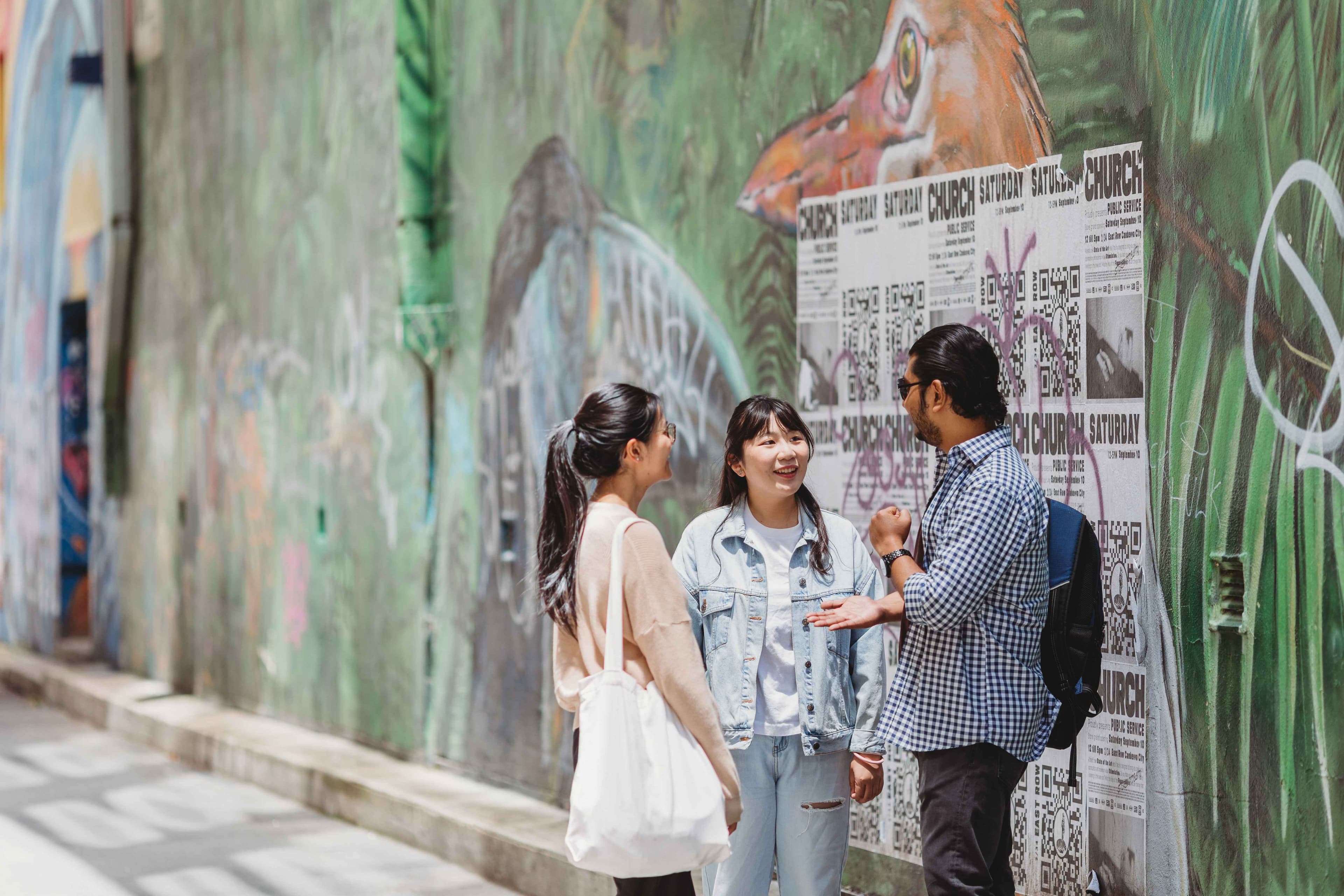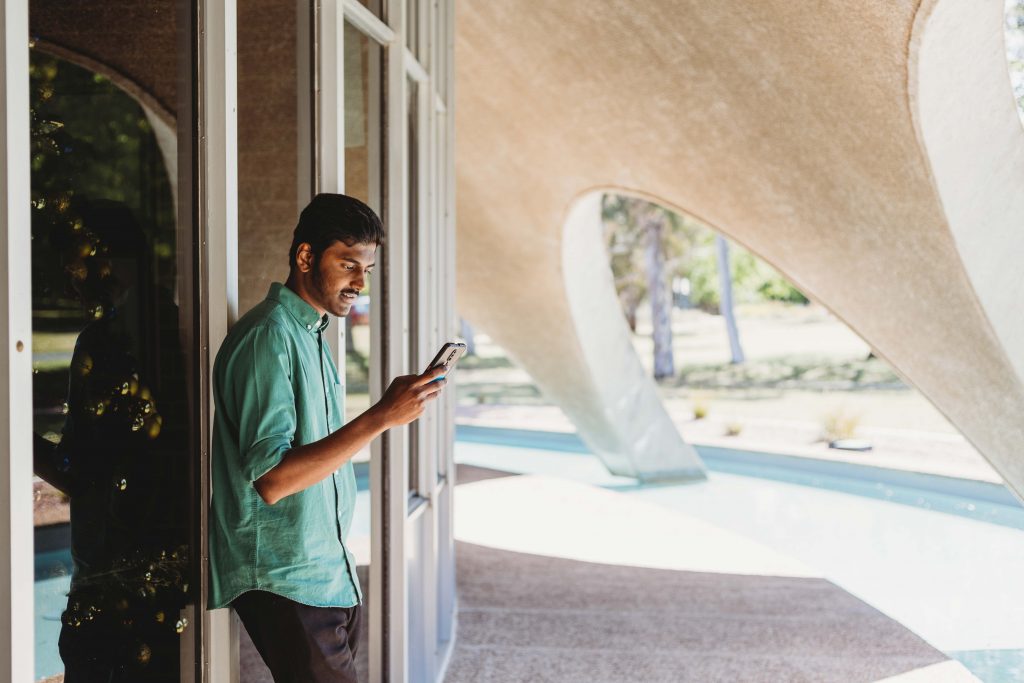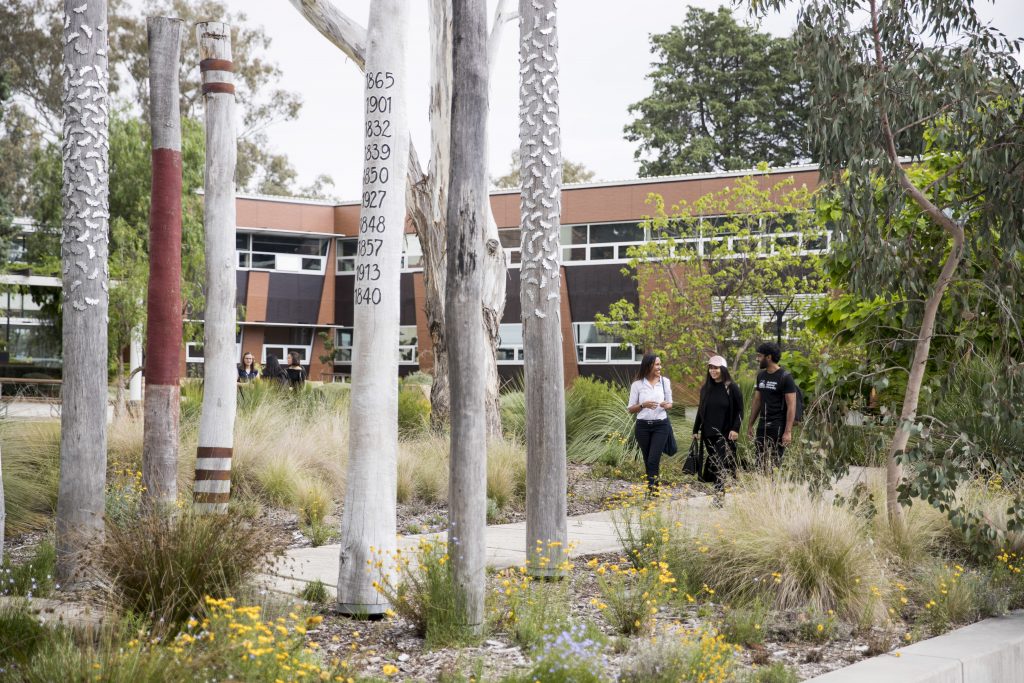
Student Guide
Created by local experts, find out more about the city and how to enjoy your time studying and living in Canberra.
Read more
We acknowledge the Traditional Custodians of the ACT, the Ngunnawal people and recognise any other people or families with connection to the lands of the ACT and region.
Finding the right services quickly can help save time, and perhaps even your life.
From medical assistance to general safety, here are some places you can reach out if you need help.
Triple zero (000) is the most important number to remember in the unlikely event of a life-threatening emergency. This will connect you to ambulance, police and fire aid. For medical emergencies where you don’t need an ambulance, head to your nearest hospital Emergency Room which are open 24 hours.
If it isn’t an emergency, there’s a range of other services and helplines available to you. For Australian students, remember to take your Medicare card along with you.
In Australia, there are public and private health systems. Public health care is government run and includes walk-in clinics and public hospitals, while services such as general practitioners, dentists and specialists are private health services. Medicare is Australia’s universal health care system, which allows Australian citizens and permanent residents to access health care across both public and private services at a reduced rate.
Some countries have reciprocal health care arrangements with Australia which can allow students to access the same level of health cover as they would at home.
Overseas Student Health Cover (OSHC) is compulsory health insurance for international students studying in Australia. OSHC will assist students to meet some medical costs if they require access to these services.
If you have a non-life-threatening injury or illness (i.e. you tried cooking for the first time and learnt that knives ARE actually sharp) then pop into a Walk in Centre.
They’re located in Belconnen, Tuggeranong, Inner North (Dickson), Weston and Gungahlin and are staffed by friendly nurses who can assess and treat a wide range of general health conditions. This service is free to everyone, and you can ‘walk in’ any day between 7:30am to 10pm.
Just to be clear:
Get to know Canberra’s Health Services before you need them.

Private doctors, known as General Practitioners (or GPs) are available across the city. Use an app like HotDoc to help you find one that’s close to you and make sure to enquire about the price for a consultation before you book.
GPs can refill and prescribe medications and help treat any illnesses or injuries you develop. Same day appointments can be hard to book. If you need to see a doctor quickly, try HotDoc or call your local clinic when they first open in the morning.
Both the Australian National University (ANU) and University of Canberra (UC) have free medical and counselling services on campus.
They offer GP consultations as well as vaccination clinics, STI testing and mental health services. This is a great resource for students to receive free and quality health care.
A great resource to remember is Health Direct where you can access free medical advice over-the-phone and online, including information about COVID-19, sexual health and your mental wellbeing. Call 1800 022 222 any time of day or night for free and confidential health advice.
Canberra is a safe city, however incidents can still happen. If you are in immediate danger, triple zero (000) should be your first call.
ACT Policing’s mission is to keep the peace and preserve public safety. ACT Police work closely with your institution and the wider community. They want you to have fun, be safe, and remember your time as a student for the right reasons.
You should call the police if you see, or are the victim of, criminal behaviour.
For non-emergency police matters such as crimes that have already happened, personal property damage or theft or when you are not needing immediate police assistance, call ACT Policing’s assistance line on 131 444, visit an ACT Police station, or report a crime anonymously at Crimestoppers on 1800 333 000.
It’s a good idea to be familiar with the security and emergency arrangements at your institution. If you are moving around campus at night, it’s safest to walk with a friend or group, and take well-lit paths that are used regularly by other people. University security can assist with on-campus issues if you are worried or something doesn’t feel right. Security escorts are available to and from your car or bus stop, particularly after dark.

While crime is comparatively low in Canberra, every city including ours experiences theft of property and unlawful entry. Remember to always lock your doors and windows, especially when you’re not home. Thieves look for easy opportunities.
When you are out and about, keep your belongings (like your wallet, phone, or laptop) close to you. Unless you really need them with you, consider leaving valuables at home in a secure place.
If you ride a bike, use a lock to secure it to a fixed object like a bike rack or tree. Remember, it is illegal to ride in Australia without a helmet, and you must have a light on your bike if you ride at night.
Canberra is proudly multicultural and is the most LGBTIQ+ welcoming city in Australia. Our city offers a rare combination of opportunity and liveability with community wellbeing and inclusion at its heart.
Our community and our educational institutions have zero tolerance to discrimination or offensive treatment of a person based on their gender, race, or sexuality. Sexual and other forms of harassment, on or off campus, is never ok.
If you experience or witness discrimination or harassment you can report it to campus security or the police. Counselling and other support services are also available on campus.
Consent is required at any stage of being intimate with someone – asking for a dance, a date, to make out, to have sex—and at any point in a relationship, whether you’ve just met or you’ve been dating for a long time.
It is never okay for someone to use force or threats to get you to do anything that makes you uncomfortable.
The Australian National University and University of Canberra offer students a free online course called Consent Matters. The course helps students understand sexual consent and how to recognise situations when consent can and can’t be given, whatever your gender or sexuality.
Legal Aid ACT have also produced a fact sheet regarding consent.
In Australia it’s important to be sun smart, particularly during the warmer months. Being sun smart means applying sunscreen, wearing a hat and sunglasses, drinking plenty of water and seeking shade where possible. You can stay informed about weather events and the Ultra Violet (UV) ratings (the likelihood of getting sunburnt) by following the Bureau of Meteorology’s Canberra forecast.
Two of Australia’s favourite pastimes are swimming and boating, and Canberrans are no different. Locals flock to swimming pools, the lakes, and local rivers to cool off on a hot day. The New South Wales south coast beaches are beautiful and make a great day trip or weekend getaway.
When you are having fun in and around water it’s important to plan and be aware of potential dangers. You should never swim alone or under the influence of drugs or alcohol, and never dive into water if you are unsure of what’s beneath the surface.
If you’re going to the coast, check the weather forecast and the swimming conditions at Beach Safe. Always swim at a beach with lifesaving patrols – the red and yellow flags tell you where it’s safe to get in the water.